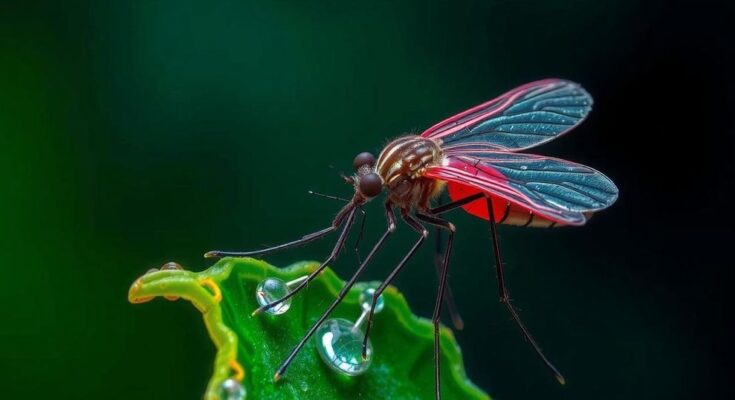A recent study indicates that one-fifth of the global increase in dengue fever can be attributed to climate change. Researchers found that rising temperatures are enabling mosquitoes to thrive in new regions, potentially leading to a twofold increase in cases over the next 25 years. This alarming trend underscores the necessity of addressing climate change and considering innovative solutions, such as disease-blocking mosquito programs, to combat this public health challenge.
Recent research indicates that climate change is responsible for nearly 20% of the surging dengue fever cases globally this year. According to scientists from the United States, the connection between rising temperatures and the spread of this disease is becoming increasingly clear. The study reveals a compelling link between climatic shifts and the exacerbation of dengue fever, which is transmitted by infected mosquitoes and primarily occurs in tropical regions. The research, which is yet to undergo peer review, analyzed data from 21 countries across Asia and the Americas. It found that with temperatures rising into the ideal range of 20-29 degrees Celsius (68-84 degrees Fahrenheit), regions previously unassociated with dengue are now at risk. The projected outcomes suggest that areas in elevated regions of Peru, Mexico, Bolivia, and Brazil could witness dengue cases surge by as much as 200% in the coming 25 years. While official records from the World Health Organization indicate over 12.7 million confirmed dengue cases this year—nearly double the previous record—experts believe that underreporting significantly skews these figures, estimating the actual number closer to 100 million. In conjunction with combating the rise of dengue, research is underway utilizing Wolbachia-infected mosquitoes, which have demonstrated a capacity to inhibit dengue transmission in Brazilian cities effectively. This innovative approach, initiated in the city of Niteroi, revealed that the introduction of Wolbachia mosquitoes correlated with a notable drop in cases during Brazil’s significant dengue outbreak. Researchers are collaborating with the Brazilian government to establish a production facility for these modified mosquitoes, aiming to shield a larger population from this growing health threat.
Dengue fever is a viral illness spread through mosquito bites, known for causing severe flu-like symptoms. Traditionally endemic to tropical and subtropical regions, rising global temperatures due to climate change are expanding the geographic reach of the mosquitoes responsible for transmitting the virus. The research addresses the intersection of climate science and public health, exploring how environmental changes translate into health implications, a relatively new focus in scientific inquiry.
In conclusion, the findings suggest that climate change significantly contributes to the rising incidence of dengue cases worldwide, highlighting an urgent public health concern. As temperatures rise, areas once insulated from the disease are increasingly at risk, warranting immediate action to address climate impacts on health. The use of innovative strategies, such as breeding disease-resistant mosquitoes, offers a potential mitigative measure against this burgeoning threat to global health.
Original Source: www.barrons.com




